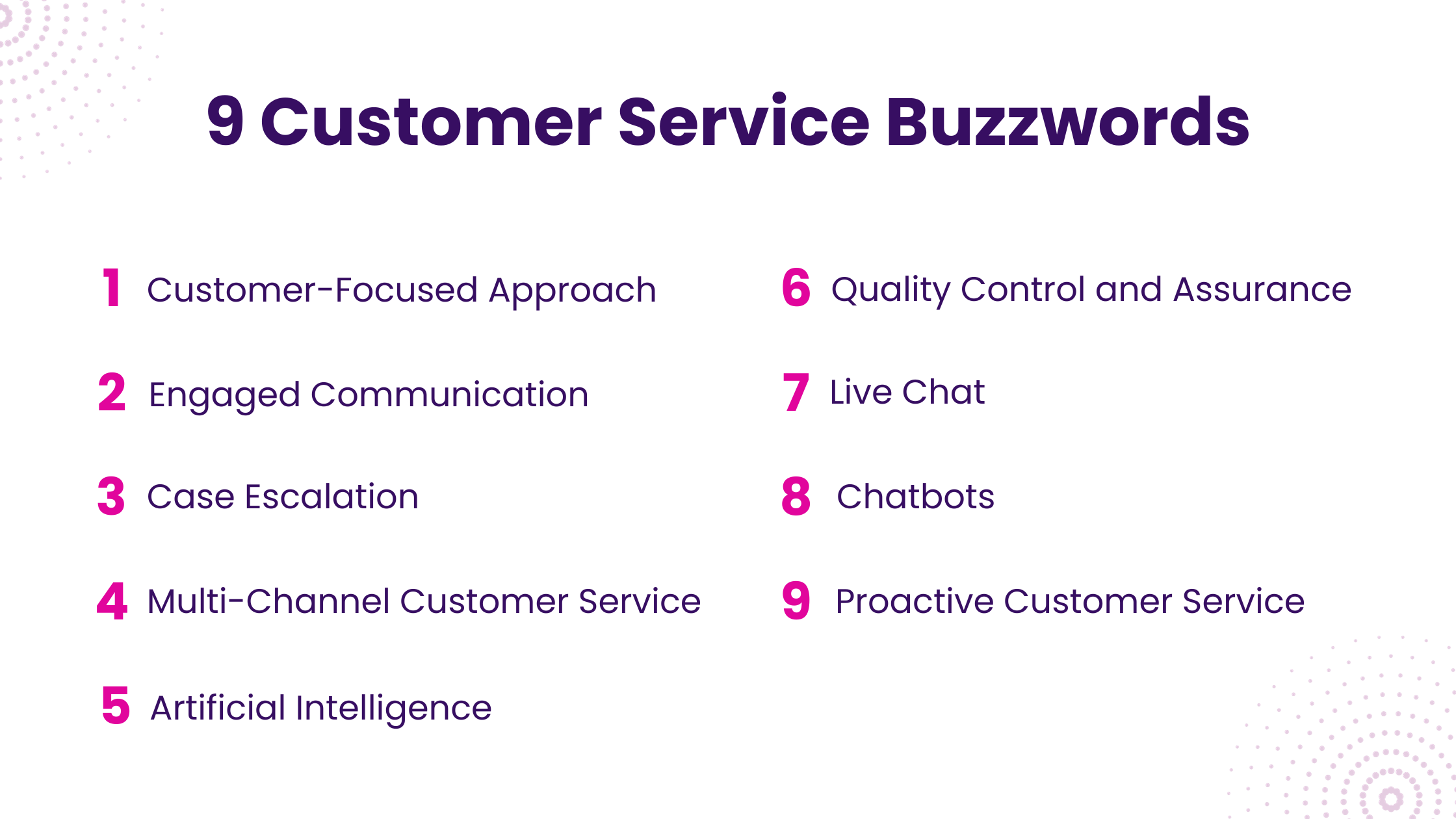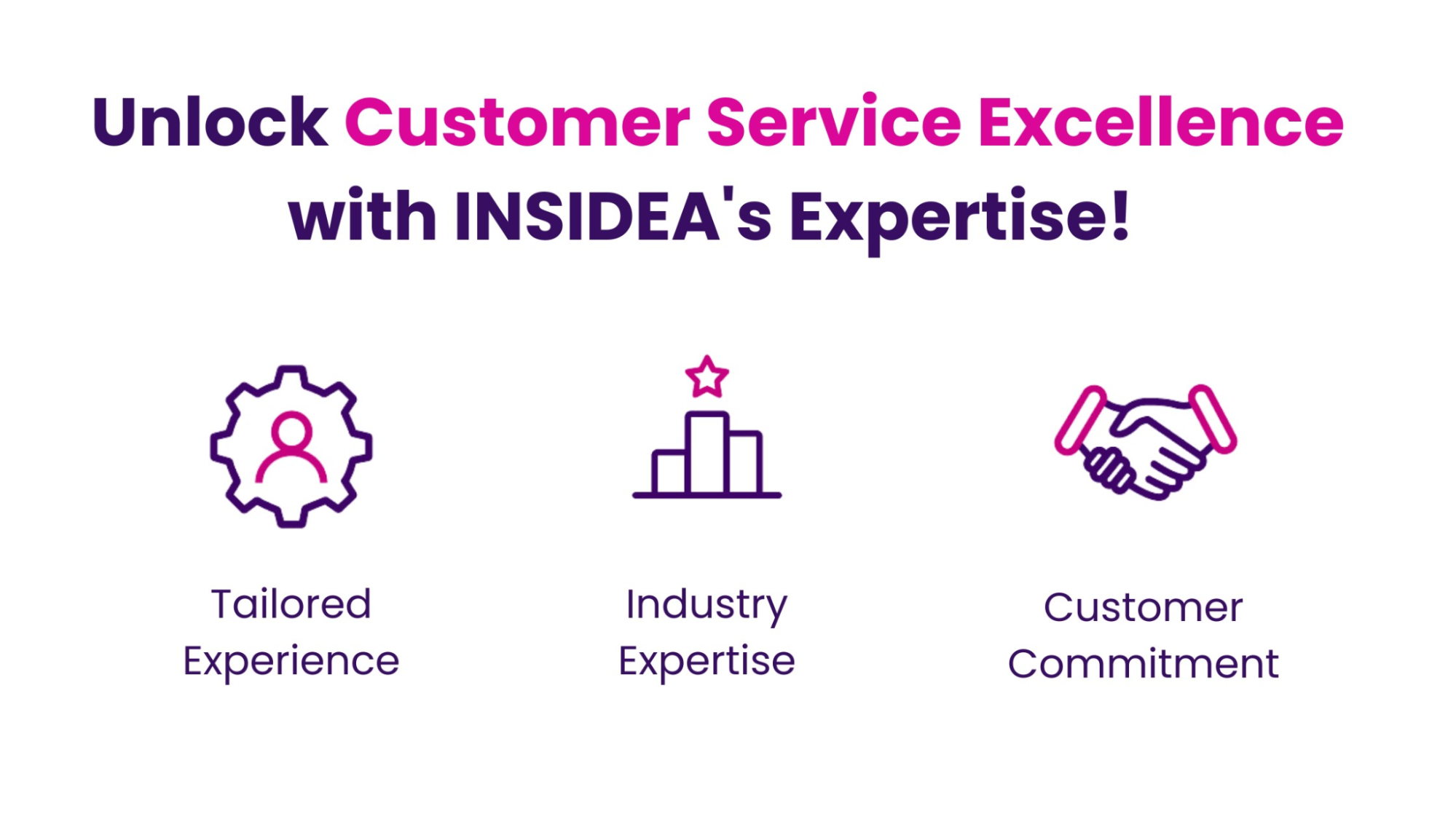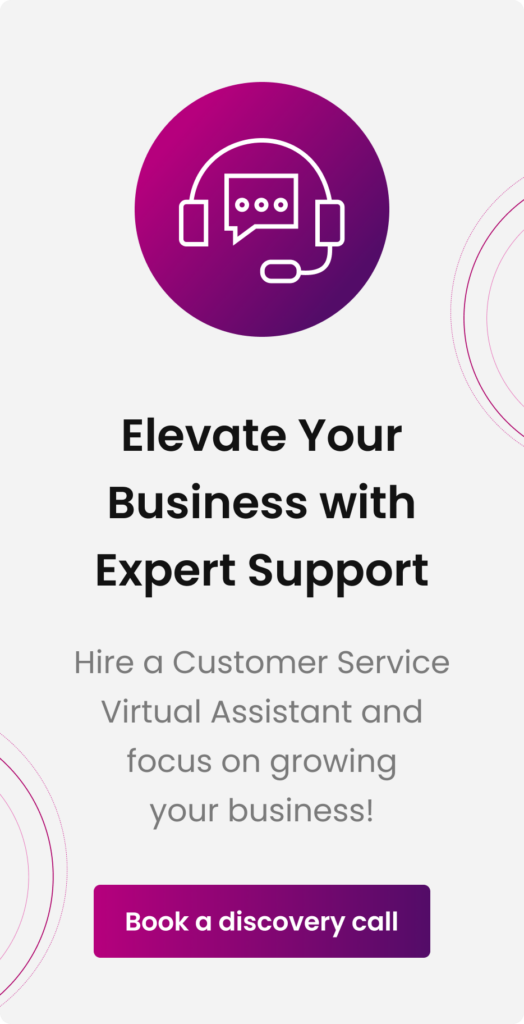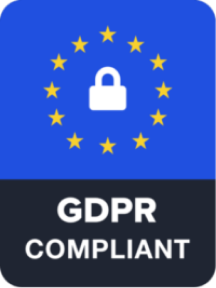Have you ever found yourself puzzled by the term omnichannel?
You’re not alone. In customer service, omnichannel is more than just a buzzword; it offers a seamless customer experience across various platforms, whether through a phone call, a website chat, or social media. But this is just the tip of the iceberg.
Just like omnichannel, customer service buzzwords are everywhere. They’re the shorthand that professionals use to communicate complex ideas quickly and efficiently. However, when these terms spill over into customer conversations, they can cause more confusion than clarity.
So, before we delve deeper, we’re curious: Have you encountered any customer service buzzwords that left you puzzled?
In this blog, we’re diving into 9 customer service buzzwords everyone should know. We aim to simplify these terms and help you understand when and how to use them effectively.
The Impact of Customer Service on Brand Loyalty
Before we delve into these customer service buzzwords, it’s crucial to understand their significance. A staggering 95% of consumers say customer service is key to their loyalty to a brand, emphasizing the importance of easy access, self-service options, and professional agents.
This statistic underscores the value of mastering these buzzwords, as they are not just jargon but tools for enhancing customer relationships and loyalty.
9 Customer Service Buzzwords: 9 Key Term

In customer service, certain buzzwords frequently pop up. While these phrases are common in internal discussions among customer service teams, their use in customer conversations can sometimes lead to misunderstandings. Let’s explain these customer service buzzwords and how they can be effectively used.
1. Customer-Focused Approach
A customer-focused approach means prioritizing the customer’s needs above the company’s convenience. This approach involves going the extra mile to ensure customer satisfaction, rather than just focusing on cost-saving measures.
This customer service buzzword is often used to describe a company’s ethos and should be backed by actual customer-focused actions. It’s important to ensure that your team meets the expectations set by claiming to be customer-centric.
Examples
- We’ve extended our support hours to better accommodate our customers’ schedules.
- To make sure we are meeting their needs, customer feedback has a significant impact on our product development.
2. Engaged Communication
Engaged Communication in customer service involves fully concentrating on the customer, understanding their message, responding thoughtfully, and remembering what is being communicated. It’s about hearing the words, paying attention to non-verbal cues and showing empathy.
This technique is crucial for customer service representatives and should be a key focus in training and coaching sessions. It’s more about internal practice than something you would explicitly state to a customer.
Examples
- A customer service rep nods and summarizes the customer’s issue to confirm understanding before providing a solution.
- The rep uses phrases like “I understand how that could be frustrating” to show empathy and understanding of the customer’s feelings.
III. Case Escalation
Case escalation occurs when a service representative, facing a complex issue or a customer’s request to speak to a manager, transfers the case to a more experienced colleague or a higher authority. This process ensures that someone with the right expertise or decision-making power addresses the customer’s concern.
Using the term “case escalation” internally within the support team is advisable. Avoid using this term directly with customers, as it might imply that their problem is unusually severe or perceived as difficult. Instead, frame it as a routine part of the process to keep the customer at ease.
Examples:
- I’m transferring your case to our technical team for further assistance. (Instead of saying escalating your case)
- Let me connect you with our manager, who can provide more detailed information on this matter.
IV. Multi-Channel Customer Service
Multi-channel customer service, another essential term in the lexicon of customer service buzzwords, refers to offering support through various independent channels such as phone, email, live chat, and social media.
This approach differs from omnichannel service, which is known for integrating these channels to create a seamless customer experience. In contrast, multi-channel service maintains these channels as separate entities.
The multi-channel approach is particularly beneficial for businesses aiming to provide customers with a variety of contact options, yet may not have the resources or capability to integrate these channels fully.
It allows companies to cater to diverse customer preferences without the complexity of channel integration.
Examples:
- A customer sends an email inquiry and receives a prompt response, and later, they can call the customer service hotline for further assistance.
- A business offers support through social media messaging and live chat on its website, catering to customer preferences.
V. Artificial Intelligence
AI in customer service refers to using computer systems capable of performing tasks that typically require human intelligence. This includes various technologies, from simple automated responses to complex algorithms that enhance customer interactions. AI can streamline processes, provide quick answers, and predict customer needs.
It’s important to be judicious when discussing AI with customers. Not everyone is comfortable or familiar with AI; some may react negatively. In such cases, it’s better to refer to the specific function or benefit of the technology rather than using the blanket term ‘AI.’
Examples:
- Our chatbot, ‘HelpMate,’ can quickly guide you to the right information on our website.
- We use automated sorting of customer inquiries to ensure faster response times.
VI. Quality Control and Assurance
Quality control in customer service ensures that every aspect of the service meets certain standards and expectations. It involves checking for flaws, gathering feedback, and making continuous improvements. However, the term quality assurance is often preferred, as it implies a proactive commitment to maintaining high standards rather than a reactive fixing of problems.
Use quality assurance to communicate a proactive approach to maintaining high service standards. It reassures customers that you are committed to delivering quality consistently.
Examples:
- Our quality assurance team regularly reviews customer interactions to ensure our service standards are consistently met.
- We have a dedicated process for incorporating customer feedback into service improvements as part of our quality assurance program.
VII. Live Chat
Live chat, a prominent term among customer service buzzwords, refers to an instant messaging tool used in customer service for providing real-time support. This tool stands out from email due to its ability to offer immediate responses.
Customers can type their queries and receive answers within moments, making live chat an efficient method for quickly addressing customer concerns.
While the term live chat is well-known in the sales and customer service sectors, it might be less recognized outside of these professional circles. In everyday conversations, it’s often more practical to describe it simply as chat or messaging.
This approach makes the concept more accessible and easier to understand for those who might not be familiar with industry-specific terminology.
Examples:
- Our website offers a chat feature for immediate assistance with queries.
- If you have any questions while browsing our site, feel free to use our messaging service for quick support.
VIII. Chatbots
Chatbots are AI-driven tools that provide automated responses to customer inquiries through live chat. They are programmed to recognize customer queries and deliver pre-set answers, facilitating speedy and efficient customer service without always needing human intervention.
It’s important to distinguish between basic chatbots and advanced virtual assistants, like interactive virtual assistants, offering more sophisticated features. When discussing these tools, being specific about their capabilities provides a clearer understanding and avoids underestimating their functionality.
Examples:
- Our chatbot, ‘AskMe,’ can quickly answer common questions about our services.
- For basic inquiries, our automated assistant is available 24/7 to help you find the information you need.
IX. Proactive Customer Service
Proactive customer service, a key term among customer service buzzwords, is about assisting customers before they even realize they need help. This forward-thinking approach focuses on anticipating and addressing customer needs preemptively.
In practice, proactive customer service can range from updating customers about new product features to reaching out when there’s a noticeable shift in their interaction with your brand. The primary aim is to identify and resolve issues before they escalate into significant obstacles for the customer.
Incorporating proactive customer service into your strategy is essential. It goes beyond mere problem-solving; it’s about elevating the overall customer experience. By adopting a proactive stance, you’re not just addressing issues – you’re showing your customers that you value and prioritize their satisfaction, a core principle in the realm of customer service buzzwords.
Examples:
- Sending an email to customers about an upcoming software update that addresses known bugs, along with a guide on installing it.
- Reach out to a customer who has recently purchased a product with tips on how to get the most out of it, or check in to see if they have any questions.
These customer service buzzwords are key to effective communication and enhanced support in any customer-focused industry. They are essential tools for improving interactions and ensuring a positive customer experience.
Unlock Customer Service Excellence with INSIDEA’s Expertise!

Understanding and effectively utilizing these customer service buzzwords is crucial for anyone in the field. By familiarizing yourself with these concepts, you can improve communication, streamline service processes, and ultimately enhance the customer experience. Remember, the right use of these buzzwords not only aids in internal communication among team members but also plays a vital role in how customers perceive and interact with your service. Stay informed and adept at using these terms to ensure your customer service remains top-notch and responsive to the evolving needs of your clientele.
Are you ready to transform your customer service and take your customer experience to the next level? INSIDEA is here to guide you through every step of the way, ensuring that your support team is empowered to deliver exceptional service.
As experts in customer support solutions, we pride ourselves on helping businesses optimize their support strategies for maximum efficiency and customer satisfaction. Reach out today to discover how INSIDEA can revolutionize your customer support and contribute to your business success!
Tailored Support Strategies: At INSIDEA, we understand that every business is unique. That’s why we work closely with you to develop customized support strategies that align with your specific needs and goals.
Industry Expertise: Our team brings a wealth of experience and industry knowledge to the table, ensuring that you have access to the best practices and insights in customer support.
Customer Commitment : Your customers’ happiness is our top priority. We are dedicated to helping you exceed their expectations and foster long-lasting relationships.
Ready to elevate your customer support experience? Book a meeting with our experts today and start your journey towards outstanding customer service and satisfaction.








































